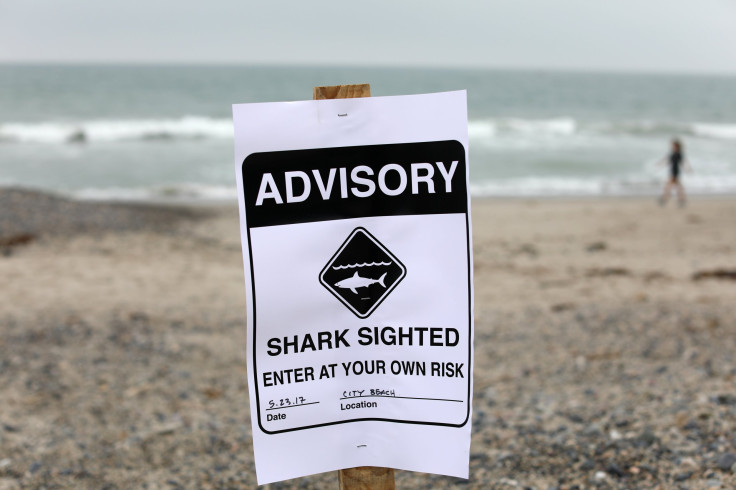How To Avoid Shark Attacks? Texas Beachgoer Bitten On Thigh

A Texas man was bitten by a shark near Crystal Beach on Bolivar Island on Thursday. The 42-year-old beachgoer was rushed to the hospital and was treated for the shark bite on his thigh.
The University of Texas Medical Branch told CBS-affiliated television station KHOU the patient's injury was not life-threatening. The Galveston County Sheriff's office posted on Facebook a photo of the shark bite.
The victim told officers he was swimming off a sandbar in the Gulf of Mexico near Crystal Beach when he felt a tug on his leg.
“The shark bumped me. Then he wanted to taste me,” the man said.
Other beachgoers told local media beach patrol had warned them about a shark attack.
This is the second reported shark attack in the Texas Gulf Coast within the past month. In July, a woman claimed she was bitten by a shark while surfing in Galveston Beach.
There have been 43 unprovoked shark attacks recorded in Texas since 1911, of which 18 attacks happened in Galveston County, according to the International Shark File, a database kept by the Florida Museum of Natural History.
Below are some tips on how to avoid and survive a shark attack, courtesy Florida Museum of Natural History website.
1. Sharks mostly attack lone individuals, it is advisable to not go in the waters alone.
2. Don't wander too far from the shore as it may be difficult to return fast for help in case a shark is spotted.
3. Avoid the water at night, dawn, or dusk as sharks are most active at these times.
4. In case of a cut, do not enter the water as blood attracts sharks.
5. Leave the water immediately if a shark is spotted.
6. Avoid going into waters containing sewage as it attracts bait fishes, which in turn attract sharks.
7. Avoid swimming towards a shark if it's seen in the water.
8. Do whatever it takes to get away after a shark attack.
© Copyright IBTimes 2024. All rights reserved.





















